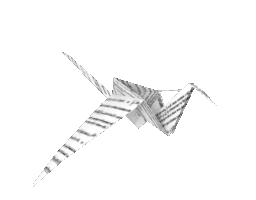All papers authored by Léa Lemaitre

Refreshing results…






2022
Renumathy Dhanasekaran  ,
Aida S. Hansen
,
Aida S. Hansen  ,
Jangho Park
,
Jangho Park  ,
Lea Lemaitre
,
Lea Lemaitre  ,
Ian Lai
,
Ian Lai  ,
Nia Adeniji
,
Nia Adeniji  ,
Sibu Kuruvilla
,
Sibu Kuruvilla  ,
Akanksha Suresh
,
Akanksha Suresh  ,
Josephine Zhang
,
Josephine Zhang  ,
Varsha Swamy
,
Varsha Swamy  ,
Dean W. Felsher
,
Dean W. Felsher  Download from aacrjournals.org
Download from aacrjournals.org
 ,
Aida S. Hansen
,
Aida S. Hansen  ,
Jangho Park
,
Jangho Park  ,
Lea Lemaitre
,
Lea Lemaitre  ,
Ian Lai
,
Ian Lai  ,
Nia Adeniji
,
Nia Adeniji  ,
Sibu Kuruvilla
,
Sibu Kuruvilla  ,
Akanksha Suresh
,
Akanksha Suresh  ,
Josephine Zhang
,
Josephine Zhang  ,
Varsha Swamy
,
Varsha Swamy  ,
Dean W. Felsher
,
Dean W. Felsher  Download from aacrjournals.org
Download from aacrjournals.org


Léa Lemaitre  ,
Malik Hamaidia
,
Malik Hamaidia  ,
Jean-Gérard Descamps,
Laura Do Souto Ferreira,
Marie-Véronique Joubert
,
Jean-Gérard Descamps,
Laura Do Souto Ferreira,
Marie-Véronique Joubert  ,
Mélanie Gadelorge,
Hervé Avet-Loiseau,
Arthur Justo
,
Mélanie Gadelorge,
Hervé Avet-Loiseau,
Arthur Justo  ,
Nicolas Reina,
Frederic Deschaseaux,
Ludovic Martinet,
Philippe Bourin
,
Nicolas Reina,
Frederic Deschaseaux,
Ludovic Martinet,
Philippe Bourin  ,
Jill Corre
,
Jill Corre  ,
Nicolas Espagnolle
,
Nicolas Espagnolle  Download from doi.org
Download from doi.org
 ,
Malik Hamaidia
,
Malik Hamaidia  ,
Jean-Gérard Descamps,
Laura Do Souto Ferreira,
Marie-Véronique Joubert
,
Jean-Gérard Descamps,
Laura Do Souto Ferreira,
Marie-Véronique Joubert  ,
Mélanie Gadelorge,
Hervé Avet-Loiseau,
Arthur Justo
,
Mélanie Gadelorge,
Hervé Avet-Loiseau,
Arthur Justo  ,
Nicolas Reina,
Frederic Deschaseaux,
Ludovic Martinet,
Philippe Bourin
,
Nicolas Reina,
Frederic Deschaseaux,
Ludovic Martinet,
Philippe Bourin  ,
Jill Corre
,
Jill Corre  ,
Nicolas Espagnolle
,
Nicolas Espagnolle  Download from doi.org
Download from doi.org

2020
Marianne Weulersse,
Assia Asrir,
Andrea C. Pichler,
Lea Lemaitre  ,
Matthias Braun,
Nadège Carrié,
Marie-Véronique Joubert,
Marie Le Moine,
Laura Do Souto,
Guillaume Gaud,
Indrajit Das,
Elisa Brauns,
Clara M. Scarlata
,
Matthias Braun,
Nadège Carrié,
Marie-Véronique Joubert,
Marie Le Moine,
Laura Do Souto,
Guillaume Gaud,
Indrajit Das,
Elisa Brauns,
Clara M. Scarlata  ,
Elena Morandi
,
Elena Morandi  ,
Ashmitha Sundarrajan
and 21 other authors
Upload
,
Ashmitha Sundarrajan
and 21 other authors
Upload
 ,
Matthias Braun,
Nadège Carrié,
Marie-Véronique Joubert,
Marie Le Moine,
Laura Do Souto,
Guillaume Gaud,
Indrajit Das,
Elisa Brauns,
Clara M. Scarlata
,
Matthias Braun,
Nadège Carrié,
Marie-Véronique Joubert,
Marie Le Moine,
Laura Do Souto,
Guillaume Gaud,
Indrajit Das,
Elisa Brauns,
Clara M. Scarlata  ,
Elena Morandi
,
Elena Morandi  ,
Ashmitha Sundarrajan
and 21 other authors
Upload
,
Ashmitha Sundarrajan
and 21 other authors
Upload

Mélissa Prat,
Augustin Le Naour,
Kimberley Coulson,
Fanny Lemée,
Hélène Leray,
Godefroy Jacquemin,
Mouna Chirine Rahabi,
Léa Lemaitre  ,
Hélène Authier,
Gwenaël Ferron,
Jean-Marc Barret,
Alejandra Martinez,
Maha Ayyoub,
Jean-Pierre Delord,
Laurence Gladieff
and 4 other authors
Download from doi.org
,
Hélène Authier,
Gwenaël Ferron,
Jean-Marc Barret,
Alejandra Martinez,
Maha Ayyoub,
Jean-Pierre Delord,
Laurence Gladieff
and 4 other authors
Download from doi.org
 ,
Hélène Authier,
Gwenaël Ferron,
Jean-Marc Barret,
Alejandra Martinez,
Maha Ayyoub,
Jean-Pierre Delord,
Laurence Gladieff
and 4 other authors
Download from doi.org
,
Hélène Authier,
Gwenaël Ferron,
Jean-Marc Barret,
Alejandra Martinez,
Maha Ayyoub,
Jean-Pierre Delord,
Laurence Gladieff
and 4 other authors
Download from doi.org


2019
Augustin Le Naour,
Naour Al,
Augustin Le Naour,
Mélissa Prat,
Benoît Thibault,
Renaud Mével,
Léa Lemaitre  ,
Hélène Leray,
Joubert Mv,
Marie-Véronique Joubert,
Kimberley Coulson,
Muriel Golzio,
Lise Lefevre,
Eliane Mery,
Alejandra Martinez
and 5 other authors
Download from academic.oup.com
,
Hélène Leray,
Joubert Mv,
Marie-Véronique Joubert,
Kimberley Coulson,
Muriel Golzio,
Lise Lefevre,
Eliane Mery,
Alejandra Martinez
and 5 other authors
Download from academic.oup.com
 ,
Hélène Leray,
Joubert Mv,
Marie-Véronique Joubert,
Kimberley Coulson,
Muriel Golzio,
Lise Lefevre,
Eliane Mery,
Alejandra Martinez
and 5 other authors
Download from academic.oup.com
,
Hélène Leray,
Joubert Mv,
Marie-Véronique Joubert,
Kimberley Coulson,
Muriel Golzio,
Lise Lefevre,
Eliane Mery,
Alejandra Martinez
and 5 other authors
Download from academic.oup.com
Missing publications? Search for publications with a matching author name.